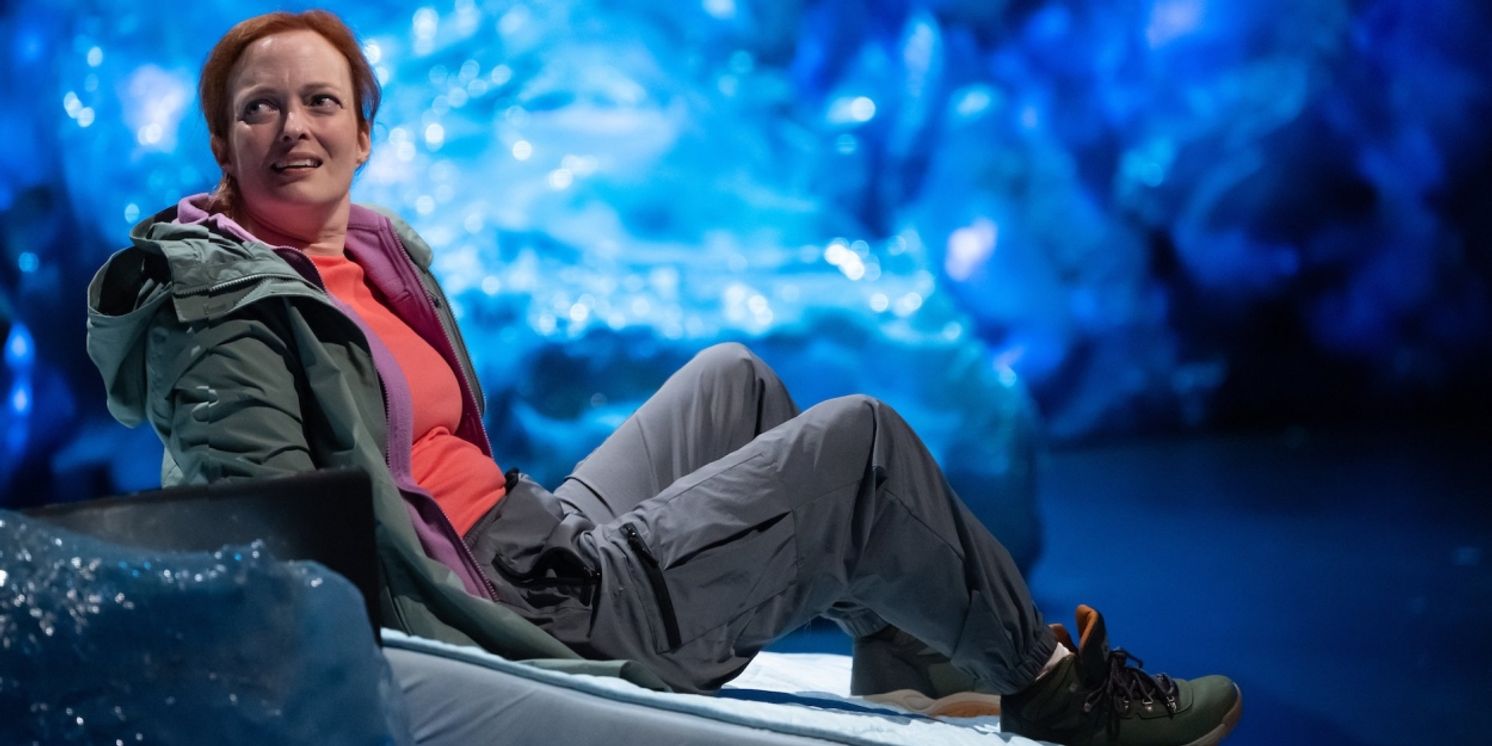The Ending of Humanity at the Bottom of the World? USHUAIA BLUE at Contemporary American Theater Festival
Contemporary American Theater Festival

If you're looking for a well-made play, if you're hoping for a completely intelligible storyline, if you want to be able to tell all the characters apart or what their relationships are to each other or where their conflicts lie, if you want each line delivered to convey a meaning clear enough to paraphrase, Caridad Svich's Ushuaia Blue, premiering at the Contemporary American Theater Festival in Shepherdstown, is not for you. Playwright Svich is not out to satisfy your particular needs.
What she has produced is more like a choral poem in which each speaker contributes to a more or less shared set of experiences and perceptions. The experiences shared have to do with people studying the ice and the flora and fauna of Antarctica largely from the vantage of the nearest continental point, the Argentinian town of Ushuaia. We learn that a young American couple, Jordan (John Keabler), a scientist, and Sara (Kelley Rae O'Donnell, pictured above), a documentarian, have come to Ushuaia and Antarctica together, and have shared the stresses and excitements of much isolation within a small scientific community there, and the larger stimulus of the song of the ice, continually breaking up owing to climate change. We learn that Sara was desultorily making a documentary of interviews with Pepa, an indigenous Ushuaia lighthouse keeper (Amelia Rico), and that she is venturing farther and farther away from human habitations to commune with the ice and creatures occasionally visible where she goes. We learn that some mishap has befallen her out on the ice, leaving her comatose, and that back in the couple's Southern U.S. hometown, their extended family discusses them. That is about as definite as things get.
The dialogue, mostly delivered in clipped phrases that force the audience to scurry to make sense of them, is highly evocative but stingy with denotation. On the page, it is laid out as poetry, thus:
I could have told you
I was happy
There
At the edge of the glacier.
The music was incredible.
I wish you could've heard it.
Deep under the water
Off against the ice sheets
It was as if the whole world were singing.
At first, it sounded like a song of deep sadness for a time
That would never be recover-ed [sic]
But then after a while,
As the ice kept breaking,
The song became one of joy
And I knew I had no choice
But to dance.
In other words, the better way to appreciate this play is as a lyric poem in which individual characters may figure somewhat, but not to the exclusion of all else. The lighthouse keeper's comments are important on this score, because it is she who articulates what I think are the playwright's closest approximations to a message on the subject of humans and their importance and their destiny (things conventional drama has evolved to satisfy our curiosity concerning). Yes, Pepa suggests, we may well be about to engineer our own extinction, but nature will be up to the work of existing on its own if we humans lay down our share of that task. Similarly, the experience of the play is not overly concerned with characters and their fates, even that of the comatose Sara - although Svich does finally satisfy audience members who might care whether Sara makes it or not.
Is that concession enough to satisfy most playgoers? I don't know. Imagine going to a poetry reading and discovering that the real business of the evening is a play; that would the converse of the Ushuaia Blue experience. Some audience members may be fine with that kind of bait-and-switch, others might not. So with Ushuaia Blue. But either way, it should be acknowledged that while this is assuredly a theater piece, it is not quite what most of us mean when we refer to a play.
As a theater piece, it's enjoyable. The performances were all up to the high CATF standard, and I loved the set and projections, by Jesse Dreikosen and Tennessee Dixon respectively, which, together with Tony Galaska's lighting, established a world and mood of fracturing ice while also making room for a bed, a filmed interview complete with camera tripod, and space for the Greek chorus-like collective of hometown neighbors, spaces which all frequently had to be used at the same time. The brooding tone was also reinforced by another kind of collective, Broken Chord, which supplied the compositions.
I found it satisfying, but individual results may vary.
Ushuaia Blue, by Caridad Svich, directed by Jessi D. Hill, presented through July 31 by the Contemporary American Theater Festival at the Marinoff Theater, 62 West Campus Drive, Shepherdstown, WV 25443. Tickets $38-$68 at the link below or 681-240-2283 ext. 1. Adult language. All audience members will be required to show proof of vaccination status and photo ID, and to wear a mask while in the theater.
Production photo credit: Seth Freeman.
Videos

